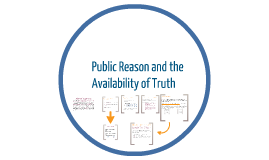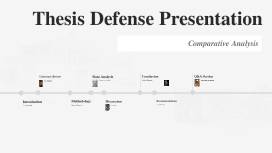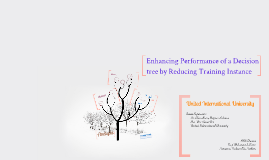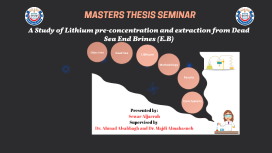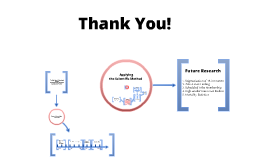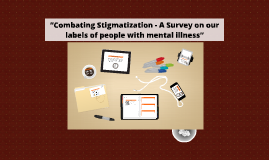Thesis Defense Presentation
Transcript: /1/ Siemens Siemens PLM Software Products: The Smart Innovation Portfolio NX VIEW IDEAL PLM TEAMCENTER Currently these listed problems are solved manually by NX designer. This process, since each drawing may have several views, many dimension, many notes, many symbols and since companies has hundreds of different drawings, may take hours and in some cases days. Siemens PLM Products Problem Statements Fibersim Syncrofit Femap 3 Weld Symbol - A button is added to NX Tool Bar Drawing Fix Tool is NXOpen API which integrated to NX. Teamcenter is a suite of product lifecycle management software that enables com-panies digitally manage their product and manufacturing information in context of the product life cycle. Teamcenter providers managing and sharing product de-signs, documents, Bill of Materials and any data in Teamcenter. And also it pro-vides workflows in order to change and control the process. /2/ Burcu Ser Simple Calculation.. If a designer can modify 1 element in average 60 seconds, this simple design takes 42*60 = 2520 secs, around 42 minutes. This makes 7 hours for 10 designs. PLM- PRODUCT LIFE CYCLE MANAGEMENT CONCLUSION Active Integration LMS Solid Edge 4 view is updated. NX Open libraries C# programming NX Block UI Styler Microsoft Windows Form library NX information window Thank you! Thesis Supervisor: Ghodrat Moghadampour Introduction 3 Notes The Drawing Fix Tool must read all these elements of drawings: dimensions, notes, views, symbols.. In order to develop a tool which reaches the all elements and modifies them the technologies below are used for implementation: 3 Properties are saved What is PLM? The Application required functions: Technologies used for implementation Teamcenter Functions to fix Surface Finish Symbols, Weld Symbols and Identification Symbols NX In 2001, Siemens PLM Solution has started implementing a plan in order to move I-deas customers to NX and this plan included ending I-deas development and support in 2015. Therefor many of Siemens customer started to I-deas to NX migration process. IDEAL PLM is involving the migration process for many big and small size companies. A function to hide the points Information Technology, School of Technology University of Applied Sciences 2016 IDEAL PLM User Interface Product lifecycle management (PLM) is an information management system that can integrate data, processes, business systems and, ultimately, people in an extended enterprise. PLM software allows you to manage this information throughout the entire lifecycle of a product efficiently and cost-effectively, from ideation, design and manufacture, through service and disposal. /1/ Diverse functions and technologies converge through PLM, including: Product data management (PDM) Computer-aided design (CAD) Computer-aided manufacturing (CAM) 3D computer-aided engineering (CAE) and simulation Mechatronic system simulation (1D CAE) Finite element analysis (FEA) Modal testing and analysis Digital manufacturing Manufacturing operations management (MOM) NX Software is an integrated product design, engineering and manufacturing so-lution provided by Siemens. NX offers such a full range of advanced manufacturing applications, integration of multi-discipline simulation and it is considered as the best tightly integrated software with Teamcenter, Product Lifecycle Manage-ment platform. /3/ NX 2D DRAWING FIX TOOL Functions IDEAL PLM is company that established in 1992, since then the company has successfully delivered project of all levels of complexity while carefully listening the customers. IDEAL PLM represents Siemens PLM Software in Finland and Russia and it has honour to get from Siemens PLM Top European Partner Award FY 2015. In June 2014 IDEAL PLM was awarded ISO 9001 : 2008 quality certificate. DRAWING FIX TOOL General Introduction Problem Statement Solution Demonstration Conclusion NX 2D DRAWING FIX TOOL Total: 23+16+3 = 42 elemts of drawing Content Table Solution - Drawing Fix Tool During the migration process, companies are facing with many different problems on designs and drawings. After investigating difference cases, it appears to be that different customers of IDEAL PLM have similar problems. Thereafter a research has started to observe the most common issues and their solutions. During the re-search, opinions of many NX designers who work actively, from customer side and the company side, are considered. "We make PLM simply work" - The GUI, created in NX Block Styler Application. Functions to change style setting of view, dimension and notes Functions to remove I-deas title block, custom symbols and to save data from the title block The main objectives of this work was to develop a software for fixing problems on drawings and adapting them to NX system. As a result the Drawing Fix Tool was developed. The software meets all the requirements set by the customers and it can be used in order to fix the problems help migrating drawings successfully. The Drawing Fix Tool is






